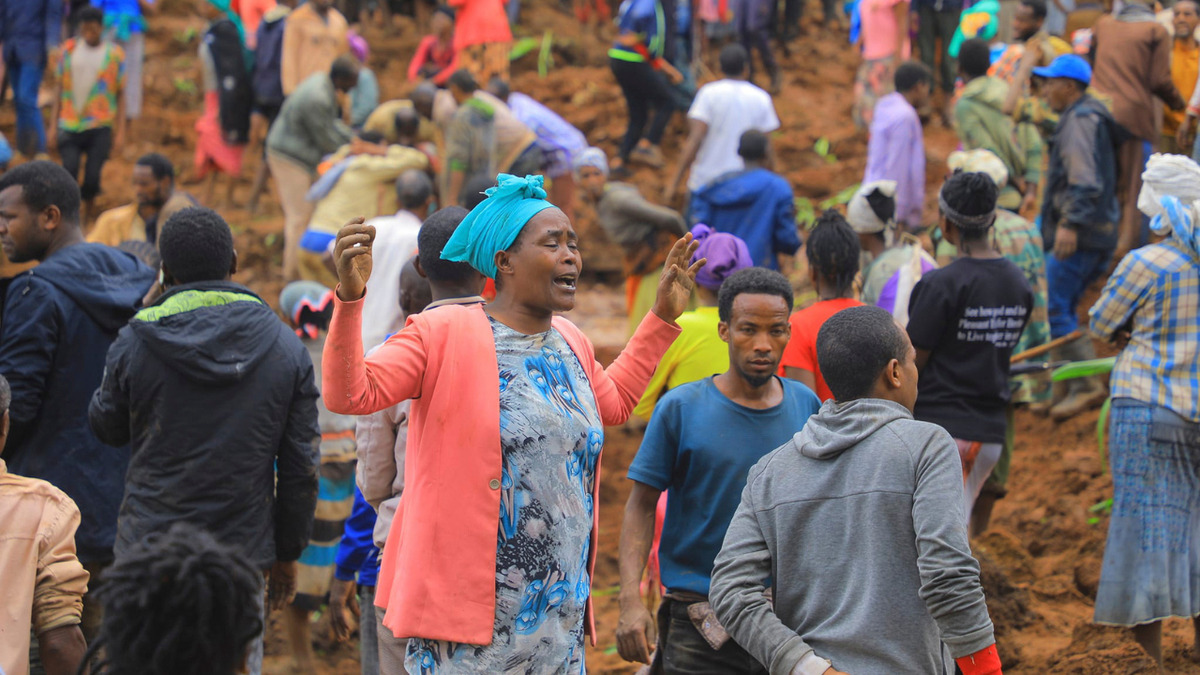- At least 157 people were killed in mudslides in a remote part of Ethiopia that experienced heavy rainfall.
- The death toll rose from 55 on Monday to 157 on Tuesday as search operations continued.
- At least five people have been rescued alive from the mud, according to authorities.
At least 157 people were killed in mudslides in a remote part of Ethiopia that has been hit with heavy rainfall, many of them as they tried to rescue survivors of an earlier mudslide, local authorities said Tuesday.
Young children and pregnant women were among the victims of the mudslides in the Kencho Shacha Gozdi district of southern Ethiopia, said Dagmawi Ayele, a local administrator.
The death toll rose from 55 late Monday to 157 on Tuesday as search operations continued in the area, said Kassahun Abayneh, head of the Gofa Zone communications office. Gofa Zone is the administrative area where the mudslides occurred.
FUNDRAISING EFFORT FOR CONFLICT-HIT ETHIOPIA GARNERS $630M, JUST OVER HALF OF $1B GOAL
Most of the victims were buried in a mudslide on Monday morning as rescue workers searched the steep terrain for survivors of another mudslide the previous day.

A woman cries as hundreds of people gather at the site of a mudslide in the Kencho Shacha Gozdi district of southern Ethiopia on July 22, 2024. (Isayas Churga/Gofa Zone Government Communication Affairs Department via AP)
At least five people have been pulled alive from the mud, Ayele said.
Another official in Gofa, Markos Melese, said many people remained unaccounted for among the group that was covered by mud while trying to rescue others.
“We are still searching for the missing,” said Melese, director of the disaster response agency in Gofa Zone.
“There are children who are hugging corpses, having lost their entire family, including mother, father, brother and sister, due to the accident,” he said.
CLICK HERE TO GET THE FOX NEWS APP
Landslides are common during Ethiopia’s rainy reason, which started in July and is expected to last until mid-September.
